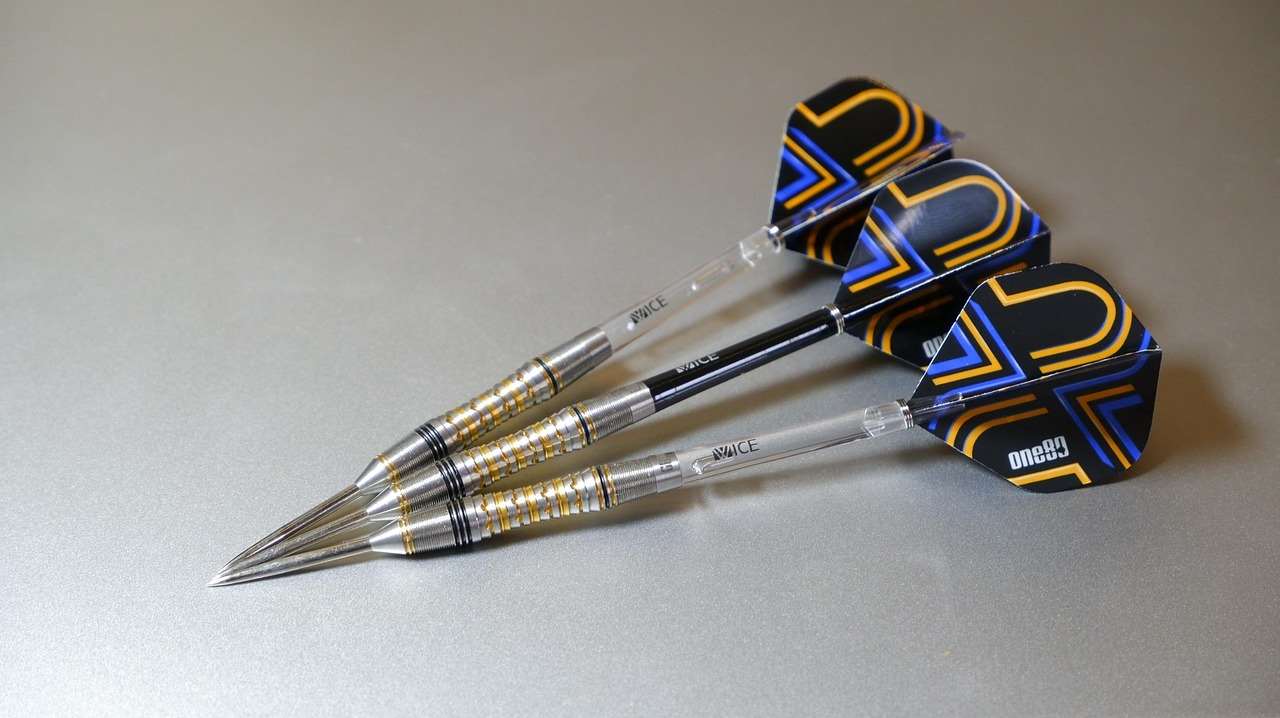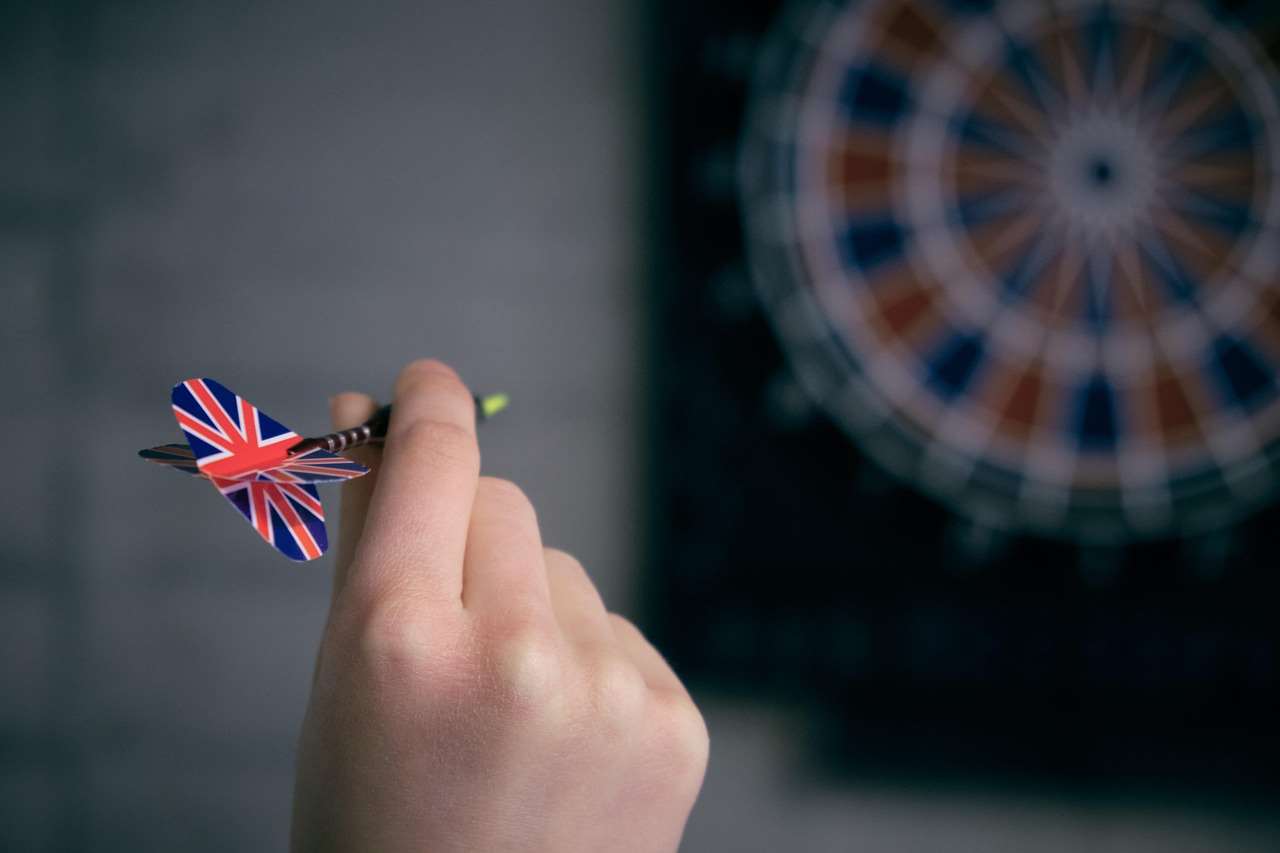Understanding darts etiquette and the spirit of the game is as crucial as mastering your throw; it ensures a fair, enjoyable, and respectful atmosphere for all players. This article will guide you through the unwritten rules and expected behaviors, fostering camaraderie and sportsmanship on and off the oche.
⚠️ Still Using Pen & Paper (or a Chalkboard)?! ⚠️
Step into the future! The Dart Counter App handles all the scoring, suggests checkouts, and tracks your stats automatically. It's easier than you think!
Try the Smart Dart Counter App FREE!Ready for an upgrade? Click above!
Understanding Darts Etiquette and the Spirit of the Game
Darts etiquette encompasses a set of unwritten rules and expected behaviors that contribute significantly to the overall enjoyment and fairness of the game. More than just following instructions, it’s about fostering a positive and respectful atmosphere amongst players, promoting camaraderie, and upholding the spirit of sportsmanship.
The Foundation of Good Sportsmanship in Darts
At its core, good sportsmanship in darts involves treating your opponents with respect, acknowledging their skill, and maintaining a positive attitude regardless of the outcome of the game. This includes:
- Avoiding disruptive behavior during an opponent’s throw.
- Acknowledging good throws from your opponent, even if they contribute to your loss.
- Accepting defeat gracefully and avoiding excuses.
- Being honest and fair in all aspects of the game, including scoring and calling darts.

Key Aspects of Darts Etiquette
Let’s delve into some specific areas where darts etiquette is particularly important:
During the Throw: Maintaining Silence and Respect
One of the most fundamental aspects of darts etiquette is maintaining silence and avoiding any distracting behavior while an opponent is throwing their darts. This demonstrates respect for their concentration and allows them to perform at their best. Avoid:
- Talking or making noise
- Moving around unnecessarily
- Standing directly in their line of sight
- Excessive celebration after your own throws
Scoring and Calling: Honesty and Accuracy
Accurate scoring is crucial for maintaining the integrity of the game. Players are generally responsible for calling their own scores, and honesty is paramount. If there is any doubt about the score, it should be clarified immediately and resolved fairly. Some things to consider:
- Clearly announce your score after each throw.
- Double-check the score with your opponent or the scorer.
- If you’re the scorer, be attentive and accurate.
- Don’t intentionally miscall scores to gain an advantage.
Celebrating and Commiserating: Appropriate Reactions
While it’s natural to celebrate good throws and feel disappointed after bad ones, it’s important to do so in a way that doesn’t disrespect your opponent. Consider these points:
- Keep celebrations moderate and avoid excessive displays of emotion.
- Refrain from gloating or taunting your opponent.
- Offer words of encouragement or support to your opponent, especially after a difficult throw.
- Accept both victory and defeat with grace and humility.
Oche Conduct: Respecting the Throwing Line
The oche, or throwing line, is a sacred space in darts. Here’s how to conduct yourself with respect:
- Do not cross the oche while throwing.
- Wait your turn patiently and avoid crowding the oche.
- Be mindful of your body position and avoid blocking your opponent’s view of the board.

The Role of the Caller/Scorer
In many darts matches, especially in leagues and tournaments, a dedicated caller or scorer is present. This role is vital for ensuring accuracy and maintaining the flow of the game. The caller’s responsibilities typically include:
- Announcing the player’s name and remaining score.
- Clearly stating each throw as it lands (e.g., “Treble 20,” “Single 5,” “Bullseye”).
- Calculating and announcing the new score after each throw.
- Confirming the score with both players.
- Ensuring that the game proceeds according to the rules.
A good caller is attentive, impartial, and has a clear and audible voice. Respecting the caller’s decisions and accepting their rulings is another key aspect of darts etiquette.
Beyond the Game: Social Darts and Pub Etiquette
Darts is often played in a social setting, such as a pub or club. In these environments, darts etiquette extends beyond the immediate game and encompasses general social graces. This includes:
- Being respectful of other patrons and staff.
- Avoiding excessive noise or disruptive behavior.
- Taking turns fairly on the dartboard, especially when others are waiting to play.
- Offering to buy a round of drinks for your opponents or teammates.
- Cleaning up after yourself and leaving the area tidy.
Remember, darts is a game of skill and strategy, but it’s also a social activity. By practicing good darts etiquette, you contribute to a more enjoyable and welcoming experience for everyone involved.

Handling Disputes and Conflicts
Even with the best intentions, disagreements can sometimes arise during a darts match. Knowing how to handle these situations constructively is an important part of darts etiquette and the spirit of the game. Here are some tips:
- Remain calm and avoid getting angry or confrontational.
- Clearly and respectfully state your point of view.
- Listen carefully to your opponent’s perspective.
- If possible, try to reach a mutually agreeable solution.
- If a resolution cannot be reached, defer to the scorer or a designated referee.
- Accept the final decision, even if you disagree with it.
Remember that maintaining a positive and respectful attitude is more important than “winning” an argument. By focusing on finding a fair resolution, you can preserve the spirit of the game and avoid damaging relationships.
Adapting Darts Etiquette for Different Skill Levels
Darts etiquette might need slight adjustments when playing with players of varying skill levels. Playing with beginners requires more patience and encouragement. Some considerations include:
- Offer helpful tips and advice to less experienced players.
- Avoid being overly critical of their performance.
- Adjust your own playing style to match their level.
- Consider modifying rules for mixed-level dart players to create a more balanced and enjoyable experience.
The key is to create a supportive and inclusive environment where everyone feels comfortable and can improve their skills. Conversely, when playing against more skilled opponents, it’s even more crucial to display good sportsmanship and acknowledge their superior abilities.
The Enduring Appeal of Darts: More Than Just a Game
Darts has a long and rich history, and its enduring appeal lies not only in the skill and strategy involved but also in the strong sense of community and camaraderie that it fosters. By embracing darts etiquette and the spirit of the game, you contribute to this tradition and help ensure that darts remains a popular and enjoyable pastime for generations to come. Understanding Basic Darts Fundamentals for Beginners goes hand-in-hand with understanding the expected behavior in the game.

Darts Etiquette and the Spirit of the Game: A Summary
In conclusion, darts etiquette and the spirit of the game are integral to a positive and enjoyable experience for all players. By adhering to these unwritten rules, you contribute to a culture of respect, fairness, and camaraderie. Remember that the true measure of a darts player is not just their skill, but also their sportsmanship and their commitment to upholding the values of the game.
Key Takeaways for Practicing Good Darts Etiquette
- Maintain silence and respect during an opponent’s throw.
- Be honest and accurate in scoring and calling.
- Celebrate and commiserate appropriately.
- Respect the oche and the throwing line.
- Handle disputes calmly and constructively.
- Adapt your etiquette to different skill levels.
- Embrace the social aspects of the game.
Elevate Your Game: Darts Etiquette as Part of Mastery
Mastering darts involves more than just perfecting your throwing technique. A truly skilled darts player also embodies the principles of darts etiquette and the spirit of the game. By embracing these values, you not only enhance your own enjoyment but also contribute to a more positive and respectful environment for all involved.
Consider exploring further into topics such as adapting darts rules for small spaces: tips and tricks to fully customize your dart-playing experience and create a fun environment for all.
So, step up to the oche with confidence, skill, and, above all, a commitment to darts etiquette and the spirit of the game. Your fellow players will thank you for it.

Hi, I’m Dieter, and I created Dartcounter (Dartcounterapp.com). My motivation wasn’t being a darts expert – quite the opposite! When I first started playing, I loved the game but found keeping accurate scores and tracking stats difficult and distracting.
I figured I couldn’t be the only one struggling with this. So, I decided to build a solution: an easy-to-use application that everyone, no matter their experience level, could use to manage scoring effortlessly.
My goal for Dartcounter was simple: let the app handle the numbers – the scoring, the averages, the stats, even checkout suggestions – so players could focus purely on their throw and enjoying the game. It began as a way to solve my own beginner’s problem, and I’m thrilled it has grown into a helpful tool for the wider darts community.